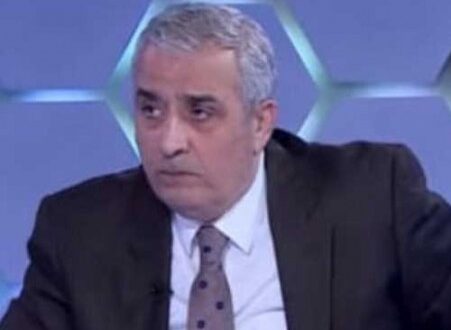By Engineer Saleem Al-Batayneh
He has been described as one of the most important security and political figures in Jordan’s modern history—one whose career and impact warrant deep examination and analysis. A product of the security establishment, Ahmad Obeidat possesses an intricate understanding of both security and political dynamics. He never sought personal luxury or material pleasures but instead dedicated himself to the principles of statesmanship. Many have viewed him as a man of unwavering integrity, strategic vision, and genuine patriotism—an individual whose national loyalty has remained intact despite the shifting tides of politics.
I have often reiterated in my writings that Jordanian political thought still lacks a precise definition of political opposition. The complete overlap between the state and those who oppose or critique it has created an intersection on all fronts. This has deprived the political landscape of much-needed balance and has allowed space for hollow, reactionary voices to dominate. These voices, suffering from political inexperience and intellectual stagnation, have failed to reach the level of political maturity necessary for meaningful engagement.
The issue is further complicated by the presence of a nebulous “gray area”—individuals who linger between opposing ideological poles yet remain detached from the reality of events unfolding around them. These individuals neither understand history nor attempt to engage with it meaningfully. Their indifference has only exacerbated Jordan’s challenges.
This raises an important question: Do we have a single Jordanian politician today with the courage to sound the alarm, to voice concerns over the dangers facing Jordan, and to navigate the intricate political balances required for stability? Every nation has its own distinct characteristics, and Jordan is no exception. However, when a country is engulfed by conflicting viewpoints, people need access to clear, accurate information to make informed decisions. The knowledge Jordanians possess about their political reality is often limited by their access to information. The more they seek, the more they discover the complexity of their own situation.
Today, nationalism is increasingly being reduced to hollow applause and performative displays that serve no real purpose. Political discourse has been monopolized by a single narrative, leaving no space for alternative perspectives. Meanwhile, forces within and beyond Jordan gamble with the country’s future, rewriting its identity in ways that ignore historical context. The media, rather than fostering informed dialogue, has become an arena of superficiality and distraction.
We, as a society, have become adept at manufacturing hostilities where none need exist. We fail to engage with events wisely, and many of our so-called leaders have fallen short of the political maturity required to navigate today’s volatile landscape. Political philosophy should be the foundation of governance, while political moderation must be an extension of rationality. A just and fair political system is what ensures security—not the other way around. The fine line between politics and security is what defines wisdom in governance. If exclusionary forces monopolize power, they will ultimately contribute to the state’s fragmentation.
Thus, I ask again: Is Jordan okay?
This question has not disappeared; it lingers in the minds of Jordanians everywhere. Throughout history, crises have produced leaders who are immortalized by their people for their courage and foresight in times of national peril. If we wish to confront the present state of uncertainty and disillusionment, we must rally our intellectual, political, and civic energies. Jordan is not lacking in capable minds, but what it needs is a renewed approach to governance—one that fosters trust, openness, and an in-depth understanding of political realities. The ongoing repression, political rigidity, and suppression of alternative perspectives only serve to stifle the nation’s progress.
Certainly, the state requires a cadre of committed, knowledgeable individuals who can provide sincere advice without being shackled by bureaucratic constraints. No single official possesses absolute wisdom, nor can any group of experts draft a comprehensive roadmap without access to all the necessary information. A vital first step is to reconnect with the public and break down the isolation that has alienated those who genuinely care about Jordan’s future.
We must also remain vigilant against those who seek to undermine Jordan’s unity. However, our vigilance must not be passive; it must be proactive and rooted in strategic foresight. To truly serve our country and fulfill our responsibilities, we must ensure that we are on the right side of history. The Jordan of today is fundamentally different from the Jordan before October 7, 2023. Recognizing this reality is the first step toward meaningful change.
Engineer Saleem Al-Batayneh
Former Member of the Jordanian Parliament
 Geostrategic Media Political Commentary, Analysis, Security, Defense
Geostrategic Media Political Commentary, Analysis, Security, Defense





